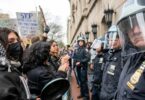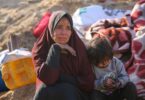Dmitry Belyaev
The prolonged presence of Turkish troops in Syria creates more problems for Ankara than advantages. At the same time, the Turkish side is in no hurry to leave the Arab republic and is even building up its military presence there. We are looking into why Turkey remains in Syria, what goals it pursues there, and why it cannot simply end this campaign.
Turkish President Recep Tayyip Erdogan last week, once again declared its readiness to conduct a military operation in Syria. This became the second such threat of the Turkish leader, voiced since the beginning of October.
The last straw, according to Erdogan, was the October 10 attack by Kurdish militants on Turkish police in the Syrian city of Azaz.
As reported by the Daily Sabah, YPG militias fired a guided missile at a Turkish armored personnel carrier, killing two law enforcement officers and injuring two others.
Kurdish question
The banned Kurdistan Workers’ Party (PKK) in Turkey is one of the reasons why Ankara formally remains in Syria. The military is trying to prevent cooperation between the Kurds living in the south of Turkey, with the Kurdish militias in the north of the Arab republic. For Ankara, a united Kurdish movement is a threat not only to security, but also to the country’s integrity.
In recent years, the Turkish army has conducted several “anti-terrorist” operations in Syria: the Euphrates Shield in 2016, the Olive Branch in 2018 and the Source of Peace in 2019. And if the “Shield of the Euphrates” was aimed, among other things, at fighting the militants of the “Islamic State” (prohibited in the Russian Federation), then the last two were exclusively against the Kurds fighting the Islamists.
Following Operation Peace Spring in 2019, Ankara created a 30-kilometer buffer zone along the Turkish border in the Syrian provinces of Haseke and Raqqa. It stretched between the cities of Azaz and Jarablus, capturing Afrin, as well as the territory east of the Euphrates River. Turkey planned to artificially flood the region with a loyal Arab population at the expense of refugees and militants from Idlib.
According to a memorandum signed between Ankara and Moscow in 2019, all Kurdish units and their weapons were to be withdrawn from Manbij and Tell Rifat. The Kurds living in the region have withdrawn their forces, but from time to time they make forays against Turkish troops and their proxies.
It is this activity that worries President Erdogan, who, following a meeting with Vladimir Putin at the end of September, called for the implementation of the Russian-Turkish agreements on the Kurds. As the Turkish leader said, at a meeting with Putin, he “especially emphasized the problem of the presence of the PKK and SNS (People’s Self-Defense Forces – TASS) in Moscow.”
Idlib zone
Another sensitive place for Turkey on the Syrian map is Idlib. This is a territory that has long been under the full control of the Turkish military. In 2017, a de-escalation zone appeared there, where Assad’s opponents moved from Eastern Ghouta and the southern regions of the country.
Turkey, which has influence over the rebels, had to separate the radicals from the moderate forces. Further, the terrorists were supposed to be disarmed and brought to justice, and the moderates were to be brought into the Syrian political process. However, disarmament work stalled, or no “moderates” were found in Idlib. The zone remains an enclave of terrorists who periodically attack the positions of the Syrian military.
At the end of 2019, sorties by Idlib militants provoked an offensive by the Syrian army, which managed to recapture part of the territory, including the strategically important M-4 highway connecting the provinces of Latakia and Aleppo.
Despite the successes of the Syrian army, the bulk of Idlib remains under Turkish control. According to the additions to the 2018 memorandum, Ankara promised Moscow to ensure the operation of the M-4 highway and expand the security perimeter around it. In Moscow, they openly declare that they are dissatisfied with the pace of this process.
As stated Russian Foreign Minister Sergey Lavrov, the threat to idlibskoy zone is not only maintained, but enhanced, creating a danger for the Russian contingent.
“After the creation of a de-escalation zone in northwestern Syria in 2017, Turkey still cannot disarm extremist groups based in the province of Idlib,” Lebanese analyst Nidal Sabi told TASS. map in its own regional game the presence of Turkish troops and puppet formations of the Syrian opposition in northern Aleppo. “
In addition, the specialist noted, Turkish artillery and opposition militants are conducting military operations against Kurdish units from the border buffer zone created by Ankara in the north of the provinces of Raqqa and Haseke.
“Trap-22”
The presence of the United States and Turkey in the country is the only reason why Damascus cannot finally end the civil war and regain control of the remaining lands.
A military solution to this problem only threatens to exacerbate the protracted crisis. A new offensive by the Syrian military on Idlib will lead to the flow of refugees to Turkey. Ankara, which has already received millions of Syrians on its territory, cannot afford a new influx. Primarily for internal political reasons.
Elections are just around the corner in Turkey (in 2023, but experts are talking about the likelihood of early voting in 2022), and Turkish voters will clearly not appreciate the next wave of migrants. Moreover, the country is already experiencing an economic crisis due to the depreciation of the Turkish lira. In addition, relations between Turks and Syrians at the household level also do not always develop smoothly.
That is why, in early September, Turkey sent several thousand of its additional troops to northwestern Syria to repel a possible offensive on Idlib.
Despite the fact that official Damascus is committed to a diplomatic solution to the situation, attacks by militants and new operations by Ankara on Syrian territory may force Assad’s army to act more decisively.
Even if Ankara holds the offensive, the military scenario will inevitably lead to serious casualties on both sides. The same will happen in the case of a new operation against the Kurds. The death of soldiers is a very sensitive topic for Turkish society. New casualties in the Syrian war will clearly not add points to the Turkish president.
But for the same reason, Erdogan cannot ignore incidents like the one in Azaz. The president’s belligerent rhetoric and the threat of a new military operation may be directed rather towards an internal audience. On the ground, Turkey may well limit itself to pinpoint strikes.
Be that as it may, today the Syrian issue, obviously, gives Ankara more problems than advantages. Any confrontation with Turkish participation will inevitably spoil the political climate inside the country. Therefore, the best way out for the authorities could be a gradual withdrawal from the republic and transfer of control over problem areas to the Assad government and its allies. After all, if the Turkish military is not on the Kurdish lands, then there will be no attacks.
However, judging by the latest statements by Erdogan, the president is not going to leave the game at all.
“In Syria, the Kurdistan Workers’ Party and the People’s Self-Defense Forces (Kurds – TASS) are strengthening thanks to the support of … forces led by the United States … In the coming period, our fight against them will continue in a completely different way. We will fight as against terrorists. organizations that support the United States and the forces of the regime [of Syrian President Bashar al-Assad], “the president said after Friday prayers.
How exactly he intends to continue the fight is not yet clear.
Courtesy: (TASS)






